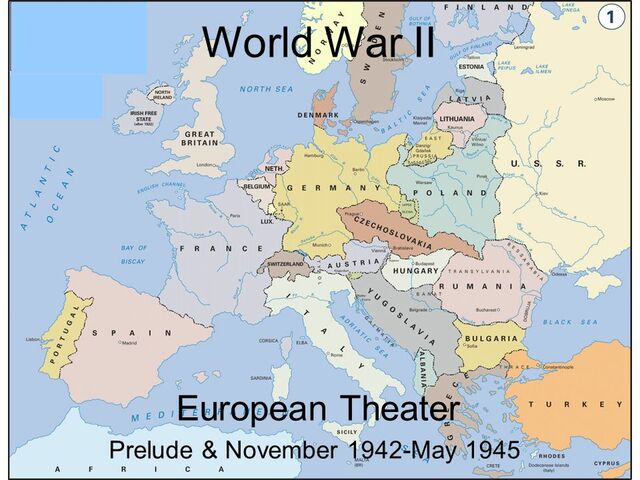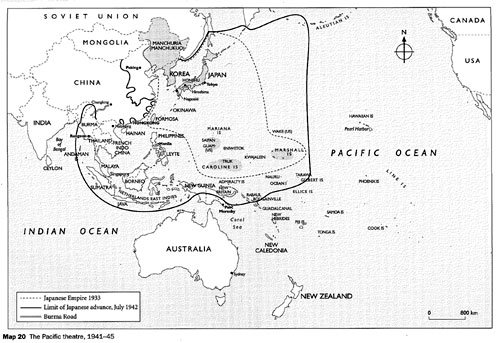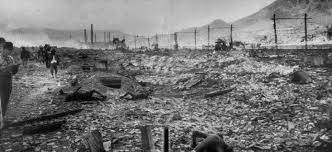World War II, one of the most devastating conflicts in human history, took place from 1939 to 1945 and involved nations from around the globe. It arose from a combination of political, economic, and ideological factors, with the aftermath of World War I and the rise of totalitarian regimes being significant catalysts. World War II- A Global Conflict and its Impact
The Treaty of Versailles, which ended World War I, placed harsh penalties on Germany and sowed the seeds of resentment. In the 1930s, dictatorial regimes emerged in Germany, Italy, and Japan, seeking to expand their territories and influence. Adolf Hitler’s Nazi regime in Germany pursued an aggressive foreign policy, while Benito Mussolini’s fascist government in Italy sought imperial ambitions. Meanwhile, militaristic Japan aimed to establish dominance in Asia through conquest.
Causes of World War II:
The Treaty of Versailles, which ended World War I, placed harsh penalties on Germany and sowed the seeds of resentment. In the 1930s, dictatorial regimes emerged in Germany, Italy, and Japan, seeking to expand their territories and influence. Adolf Hitler’s Nazi regime in Germany pursued an aggressive foreign policy, while Benito Mussolini’s fascist government in Italy sought imperial ambitions. Meanwhile, militaristic Japan aimed to establish dominance in Asia through conquest.
Major Events and Phases:
The war can be divided into two primary theaters: the European Theater and the Pacific Theater.
European Theater:
The war began in Europe with Germany’s invasion of Poland in September 1939. Hitler’s blitzkrieg tactics swiftly overwhelmed Poland and other European countries, including Denmark, Norway, the Netherlands, and France. Britain, under Prime Minister Winston Churchill, stood defiant against German air attacks during the Battle of Britain. Germany’s invasion of the Soviet Union in 1941 marked a major turning point, leading to a brutal conflict on the Eastern Front. The Soviets ultimately repelled the German forces and launched a counteroffensive that culminated in the fall of Berlin in 1945.

Pacific Theater:
Moreover, in the Pacific, Japan’s expansionist ambitions led to the occupation of Manchuria in 1931 and the invasion of China in 1937. Subsequently, the attack on Pearl Harbor on December 7, 1941, effectively drew the United States into the war. Throughout the Pacific Theater, a succession of fierce battles ensued, such as the Doolittle Raid, the Battle of Midway, and the island-hopping campaign, all of which steadily eroded Japanese forces. Ultimately, the deployment of atomic bombs on Hiroshima and Nagasaki in August 1945 compelled Japan to surrender.

Holocaust and War Crimes:
One of the darkest chapters in human history, the Holocaust, occurred during World War II. The Nazi regime implemented a systematic genocide, targeting six million Jews, along with millions of others deemed undesirable, resulting in the deaths of millions in concentration camps and extermination facilities. After the war, major war criminals were prosecuted in international trials, such as the Nuremberg Trials and the Tokyo Trials, in an effort to hold them accountable for their atrocities.
Legacy of World War II:
The impact of World War II was profound and far-reaching. It led to the redrawing of national boundaries, the collapse of empires, and the establishment of new nations. The United Nations was formed in 1945 as an international organization to promote peace and prevent future conflicts. The war also accelerated the process of decolonization, as many colonies sought independence in the post-war era. The technological advancements made during the war, including developments in aviation, nuclear technology, radar, and computing, transformed the world and laid the foundation for subsequent innovations.
Furthermore, World War II solidified the United States and the Soviet Union as the two superpowers in the world, setting the stage for the Cold War. The ideological divide between communism and democracy defined international relations for decades to come. The war’s immense human cost and the lessons learned from its horrors have shaped subsequent efforts for peace and reconciliation, emphasizing the importance of diplomacy and international cooperation.

Conclusion
World War II was a global conflict that altered the course of history. Its causes were rooted in political, economic, and ideological factors, and the war itself witnessed a series of major events and campaigns across Europe and the Pacific. The Holocaust and war crimes perpetrated during the war highlighted the depths of human depravity. The legacy of World War II includes the establishment of international institutions, the redrawing of borders, and the technological advancements that continue to shape our world. It serves as a reminder of the devastating consequences of war and the ongoing imperative for global peace and stability. World War II- A Global Conflict and its Impact

